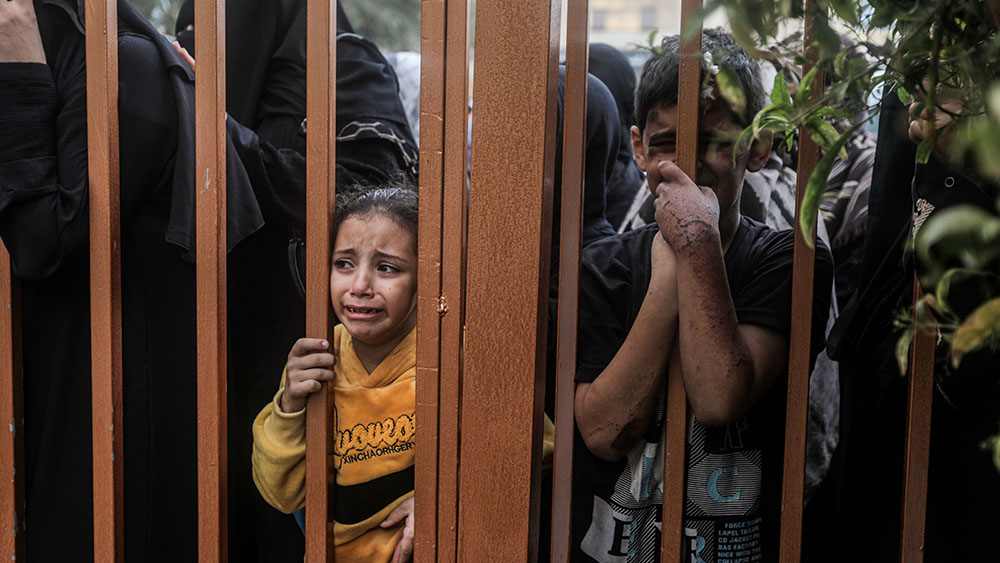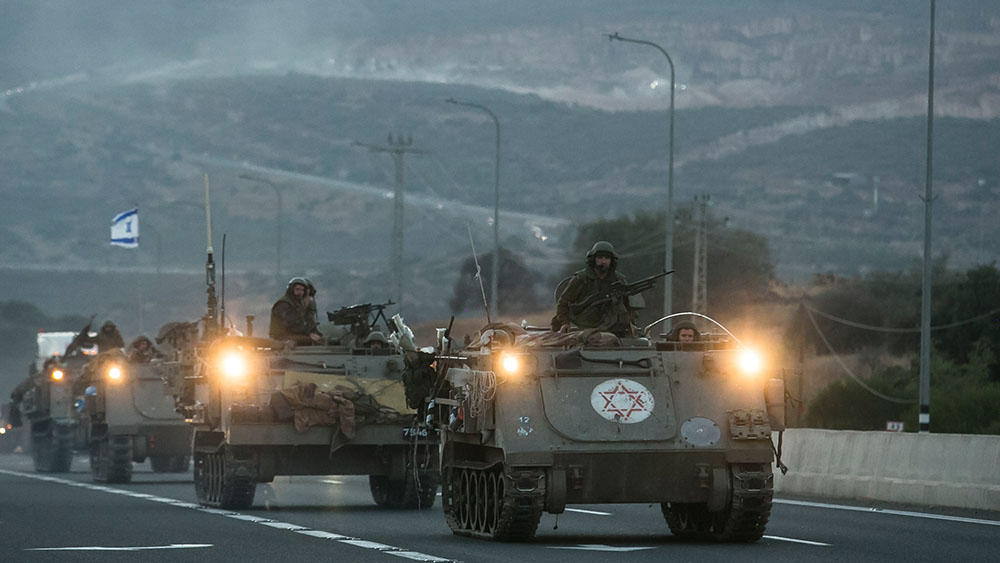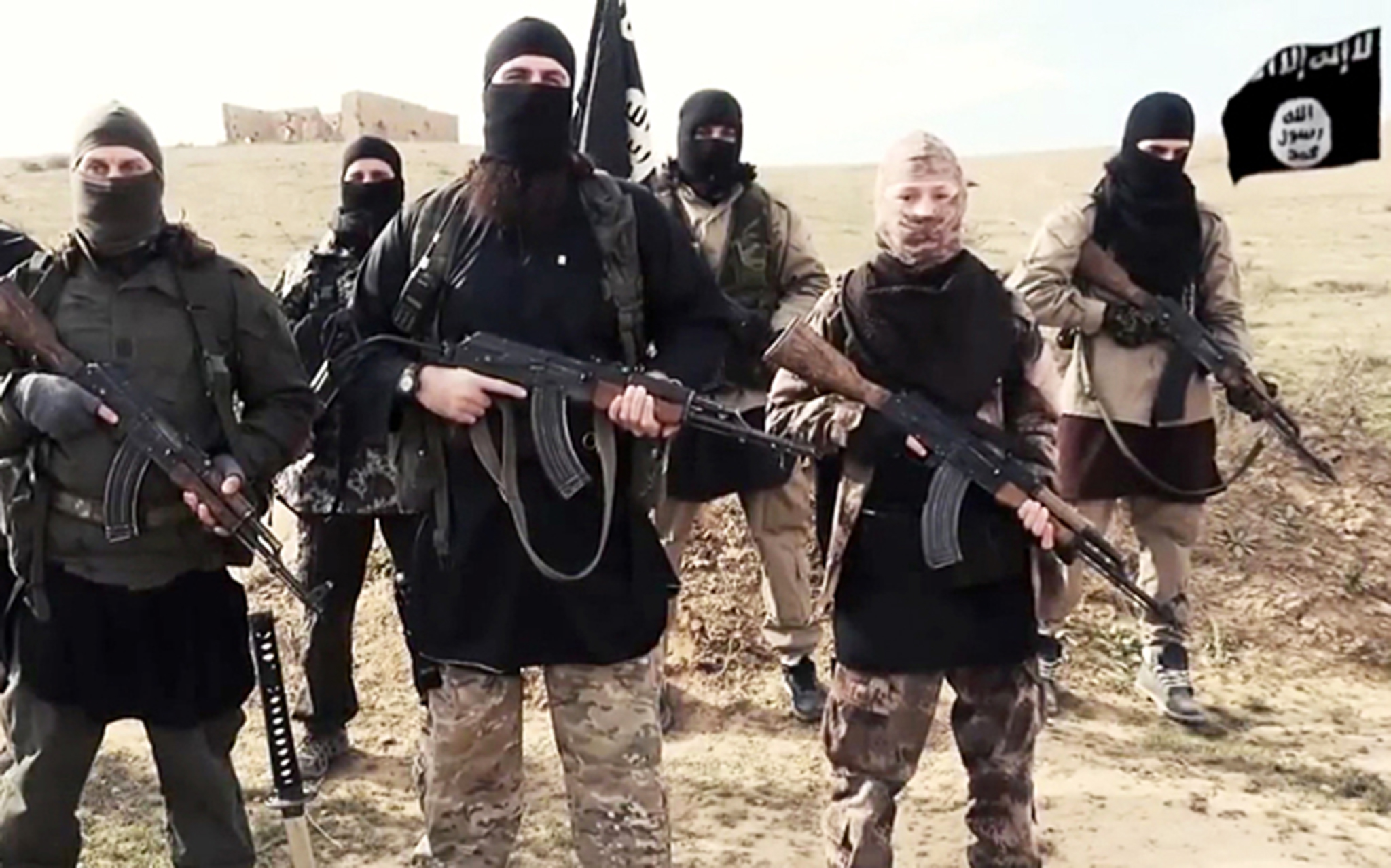I'm a Palestinian Christian in Gaza. I want peace for my homeland and my family.
I have been living in Gaza my whole life but, honestly, I can barely remember the details of my life before two months ago. So much has changed—and it was already a year of major change in my personal life.
(Article by Rami Aljelda republished from
AmericanMagazine.org)
In May of 2022 I married my wife, Maryan. Over the past year, we designed and built our house together, inch by inch. Maryan chose the color of the curtains, the furniture. We did everything together, going here and there, to restaurants, to people’s homes. We had a life. We had community. And in June of this year, we had a daughter.
Even though we have lived through other conflicts before, this is the first one that has happened since I married and had a child. It is totally different. I don’t know how to describe it, but with everything that happens to me, I always think about my wife and my daughter, Kylie. It is not like before. I have responsibility as a new father.
We don’t set an alarm because we don’t sleep very well, and we also wake up from the sound of bombings.
I’m a Palestinian Christian living in Gaza. We have a small community of Christians here—about 900 people out of two million. We all know one another because we are all one community. Of course, we have had bad times before, with smaller escalations happening. But we were able to overcome them. We didn’t have to leave our homes. This time, we knew it would not be the same. Within two days of the start of the conflict, without any hesitation, my family went to St. Porphyrius Greek Orthodox Church. We have lived in the church for nearly two months. I can say we are “living” in the church—not staying or taking shelter—because it’s really like we are living here.
Each day we wake up in a hall with 300 other people. We don’t set an alarm because we don’t sleep very well, and we also wake up from the sound of bombings. There is nothing to do except help out in the distribution of food and water, but we have a lot of roles and responsibilities in this effort. After two months, we have gained a good deal of experience.
We have a shower schedule for every person. We have a queue in the mornings for people to go to the bathroom and a schedule for washing clothes by hand. We have only two hours of electricity a day if we’re lucky, because we don’t have enough fuel. During those two hours, everybody is charging their phones, their laptops, or anything they need. And we help each other to cook. We have to make sure that we have supplies that can last for a while because we don’t know how long this will go on. We haven’t eaten a single fruit or vegetable in more than 50 days. Every day that goes by is even harder than the day before. My daughter hasn’t been able to get two essential vaccinations and is sick from the polluted drinking water.
They lost pictures, memories of their childhoods, their weddings, their life milestones—belongings that nobody can replace or rebuild.
The stress level is high. We didn’t think about food before, about electricity. They seemed like small things in our daily life. Now, our entire days are scheduled and defined by them. We have zero connection with the Internet and a poor connection with mobile devices. Sometimes we can’t reach our friends or our families who are not with us. Sometimes we hear bad news about our friends—news that we should have heard 10 days ago. But we’re doing all that we can to hang in there. We’re doing our best to stay strong.
During the pause in fighting, my wife and I were able to leave the church to go back to visit our home. I don’t know how to describe our visit. We might be better off if we had not had that chance to return. We drove my car and saw what has become of the city. Everything is on the ground. Demolished. You can barely recognize the streets. It’s a horror show. Words, videos, not even pictures can capture what it is like to drive through Gaza and see the destruction. It’s beyond comprehension.
During the pause in fighting, my wife and I went back to our house to pick up some things—water and some food. We found our cat, Louki, who was really like our first child. He had survived. When we visited our home, we felt like it could be for the last time; our house could be the next to be demolished. We looked at every inch and corner of the home because we put it together. When I got married, I spent all my savings to build the house. I spent everything I had because I wanted to be comfortable living in our home, raising our family. We never imagined that we could lose it so soon.
More than 70 percent of the people here don’t have a home anymore. They also lost their stores, their businesses. Many are living on the street. If the war suddenly ended now, nobody could go back to their lives before the conflict—even if their homes were standing—because they don’t have water or electricity or any of the essentials needed to live. There are no stores, no supermarkets, nothing to buy. And even if they are able to rebuild, it would never be the same. They lost pictures, memories of their childhoods, their weddings, their life milestones—belongings that nobody can replace or rebuild.
Now, since the fighting has begun again, we cannot leave the church at all. Currently, we’re hearing a lot of bombing around us. We don’t startle anymore when we hear heavy bombings. We know that the tanks are around us. Two days ago, my car was destroyed because it was parked in a schoolyard next to our church.
With Christmas approaching, no one here is going to celebrate as usual, even though we are living together here at the church. We have no desire to celebrate because we lost 17 of our relatives and friends here on these grounds
in a bombing. It will be impossible to feel the happiness of Christmas—no decorating a Christmas tree or dressing in our best outfits. We will attend Masses only.
Read more at:
AmericanMagazine.org
 Parler
Parler Gab
Gab










